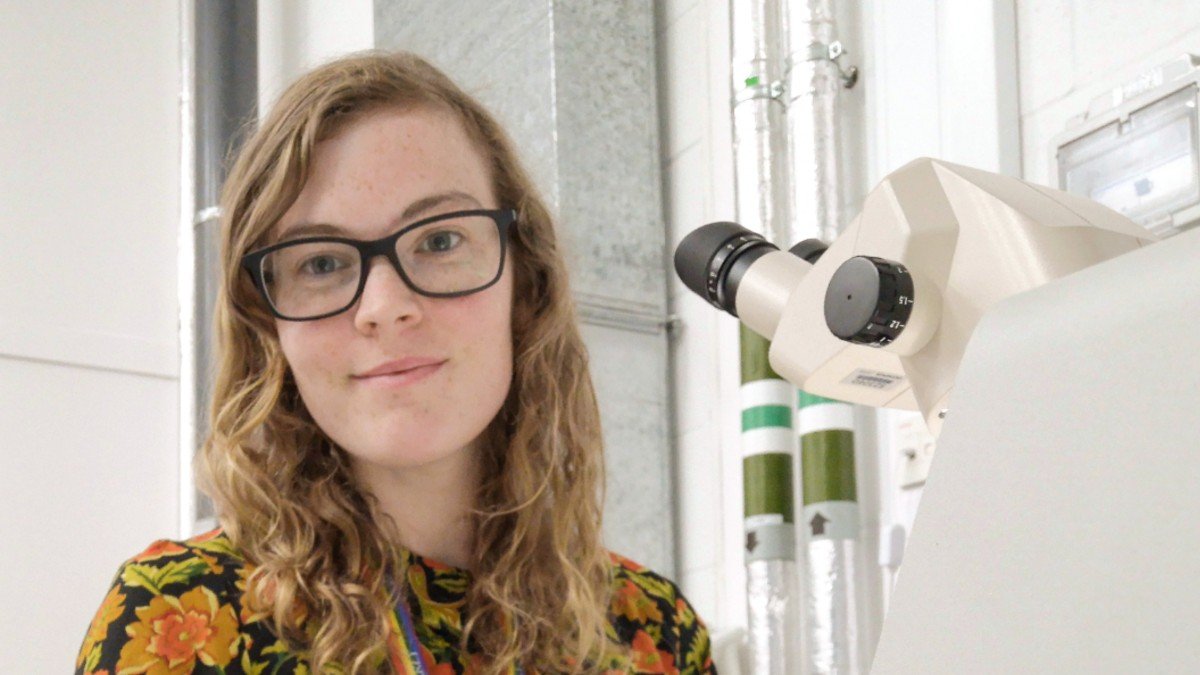Daisy Shearer discusses the challenges and strengths of studying with autism
Surrey PhD student Daisy Shearer is an experimental physicist working in quantum technology at our Advanced Technology Institute. Diagnosed with autism in 2017, she’s also a vocal ambassador for neurodivergent people in science, technology, engineering and maths (STEM) subjects.

Experimental physicist Daisy studying for her PhD at the Advanced Technology Institute
How has your autism diagnosis affected your life?
“It was empowering. I still struggle with accepting my diagnosis at times. But mostly it’s allowed me to recognise that all the little things I got annoyed at myself about and I didn’t understand were a reflection of how my brain is wired.
“Now I’m diagnosed, I feel less shame about doing things differently to other people, which is a nice feeling."
What sort of support have you had at Surrey?
“My diagnosis gave me access to Disabled Students’ Allowances (DSAs) and the University’s amazing Disability and Neurodiversity (D&N) services. I’ve been working with my specialist D&N mentor since the last semester of my Masters in Physics and I’ve grown as a person and as a scientist thanks to her help.
“Because I was diagnosed quite late in life, I’d inadvertently developed study techniques that worked for me. Seeing my learning support mentor has helped me to hone these.
“An example of the support I get are ‘reasonable adjustments’ to combat my sensory processing differences, among other things.”
How does your autism manifest?
“That’s a big question! Autism looks different in all autistic people and there’s a lot to unpack.
“An example is that being autistic means I process sensory information differently. This often results in an overload and potential autistic ‘meltdown’ or ‘shutdown’, so I have to manage the sensory inputs I encounter to minimise this.
“I also have some differences with how I communicate with colleagues. I’ll often become non-verbal when under stress. I can also experience an auditory delay when listening to someone speak. This makes face-to-face meetings a little difficult, but I manage it most of the time.
“I also need things to be extremely specific to understand what is required of me. I can’t ‘read between the lines’."
Does this affect your research?
“I think my autism is part of why I’m a good researcher and scientist. I can tap into something called ‘hyperfocus’, which is recognised in neurodivergent people with Autistic Spectrum Condition (ASC) and Attention Deficit Hyperactivity Disorder (ADHD).
“This means I can have extreme focus on a task for a long time. My neurotype also means I’m logical and precise, I have great attention to detail, and I analyse things in great depth as well as approaching problems from a unique perspective.”
How do your tutors help?
“My tutors are supportive and they try to understand how best to communicate and work with me.
“Unfortunately, there are many undiagnosed autistic people out there who do not get access to this type of support. Waiting for diagnosis can take several years in some cases or it can be incredibly expensive, so not everyone has access to it.”
What are some key things to know about autism?
“Firstly, autism isn’t a disease. It’s a certain neurotype that means we experience the world differently to most of the population, and we sometimes need extra support to function in a society built for the neurotypical mind.
“Secondly, the best way to support an autistic person is to ask them what their preferences and needs are and work from there.
“Thirdly, autism can look different in different people. For example, autism generally presents differently in females than males. It doesn’t always present in the stereotypical way that the media portrays it, which is skewed towards the experience of a specific type of male autistic.”
Find out more about our Advanced Technology Institute and our Disability and Neurodiversity department.
Follow Daisy online at www.notesfromthephysicslab.com.